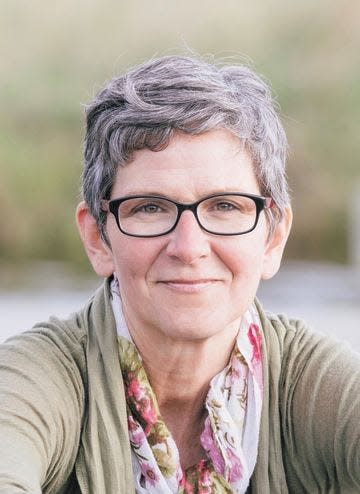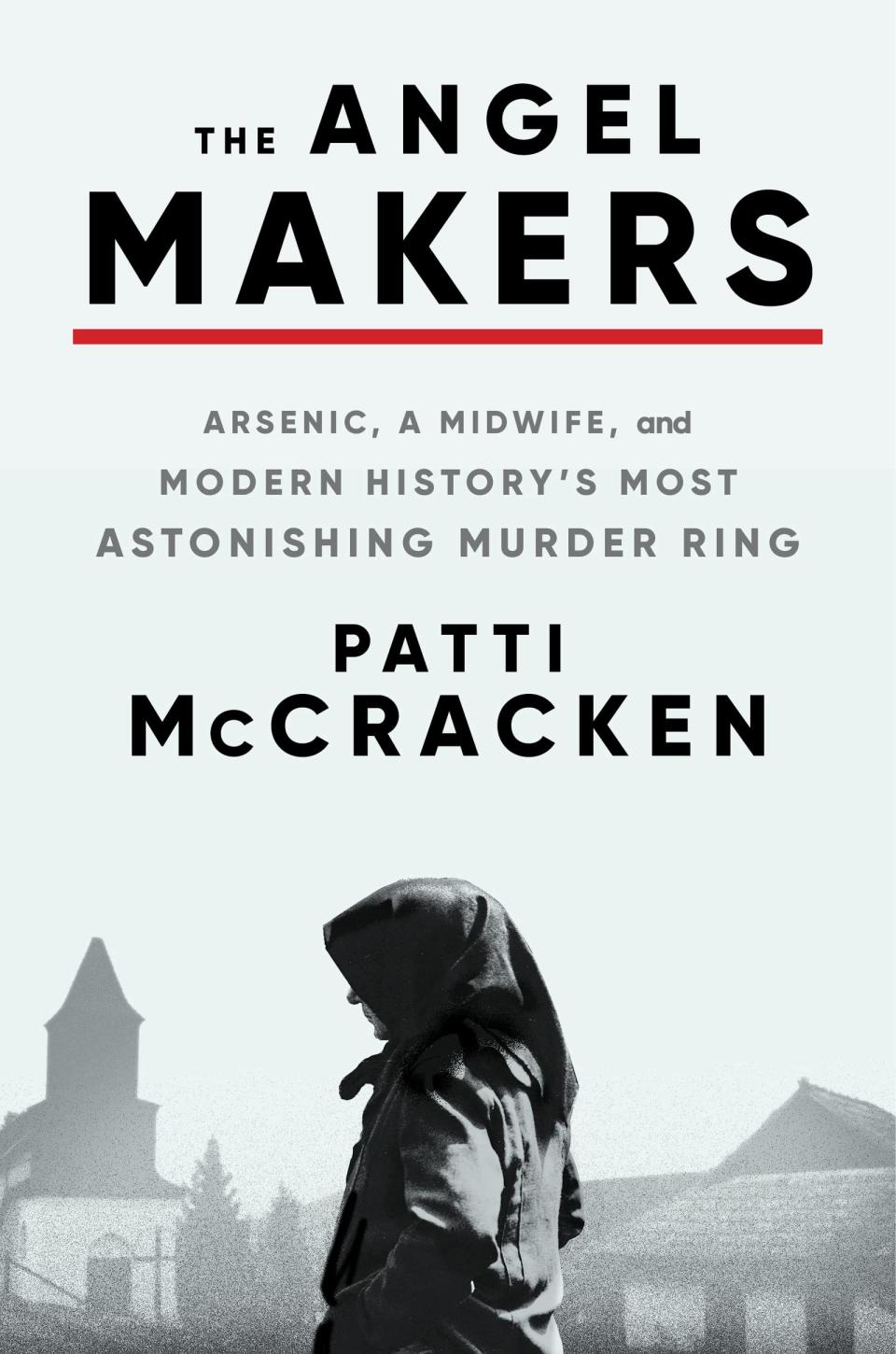"The Angel Makers": Patti McCracken shares astonishing true crime story at The Book Lady
In the 1920s, in the small, rural village of Nagyrev, Hungary, villagers relied on a waddling, pipe-smoking midwife named Auntie Suzy for her effective balms, tinctures, tonics, massages, and other medical skills. However, when local women desperately came to her for help with unwanted pregnancies, abusive husbands, or troublesome relatives, Auntie Suzy had a special solution for their problems — a small vial of arsenic hidden in her apron.
In her debut book, “The Angel Makers,” journalist and author Patti McCracken vividly tells the story of Auntie Suzy and the dozens of other women that comprised one of the most infamous murder rings in history, one that investigators discovered was responsible for the deaths of more than 160 men.
In 1929, news of Auntie Suzy and her dozens of conspirators shook the world, but the story was just as quickly forgotten in the wake of the stock market crash. McCracken rediscovered the remarkable story while she was a freelance journalist living in a small European village not far from the Hungarian border.
“I was looking for a story and I was ambling down the back roads of the internet, and I found this odd story about these women in this village,” said McCracken over the phone.
McCracken recruited a photographer, and an interpreter, and visited Nagyrev to learn more for an article.

“It was quite moving to be there, and it was odd in itself to be in this village with these descendants where all of their ancestors are either perpetrators or victims, or both,” recalled McCracken. “I wrote the article, and you know how it is, you sort of move on to the next thing. It was a story that just stayed with me and even though I finished and moved on, it was something you would talk about when you got together with friends. It was this story that wouldn’t go away.”
McCracken spent the next fourteen years researching and writing “The Angel Makers,” a narrative non-fiction true crime book that paints in pictorial detail the fascinating people and troubling actions that led to a culture of murder.
'I wanted to recreate the DNA of everything'
To research her book, McCracken spent months meticulously pouring over stacks of handwritten archival documents related to the case.
“Sometimes it was the feeling I was in the middle of the ocean, and I could either swim back to shore to where I came from or keep going and swim across,” said McCracken. “I went fishing and caught a whale. As interesting as the story was, it was just incredible once we got into the archives. The reality of it hit, the reality of what happened and that these are actual lives. These were actually people that did this and people that were affected. It was pretty intense.”
City Music: Five years after moving here, singer-songwriter Dustin Price is still inspired by Savannah
Author Talk: Best-selling author Colleen Oakley visits Savannah for new 'Thelma & Louise' inspired book
McCracken relied on a research assistant to help her translate news clippings, documents, gendarme reports, forensic reports, and trial transcripts.
“He is a Szolnok historian, which is the county seat of where this story takes place in,” McCracken said of her assistant. “He is also fluent in English. He knew exactly what I meant when I said I wanted the details to rebuild this event. He was digging through newspapers to see what movies were playing at the time, giving me more information than I would ever need, but I ended up using a lot of it. He was also a local, so he knew the village life.”
Thanks to their thorough research, McCracken captures village life in minute detail. Descriptions of grimy smoke-filled taverns, gatherings of gossiping crow-like babushkas, the daily accumulation of dust and dirt from farming, the aural atmosphere of warbling birds and roving packs of mongrel dogs, and peaceful moments of villagers tending their flower gardens all bring the village and its residents to life.
“I wanted to recreate the DNA of everything, not just the people, but the village itself plays a role,” explained McCracken. “You need to understand how they live. I wanted to make sure that all the context was given. Men returning from war, the Spanish Flu, and the other things they had to contend with. Or even the things like Sunday dances and people falling love, or men singing down by the river.
“It was important for me to understand. I had to delve into all the details. Once I’ve done that, why not give that back to the readers so that they can understand.”
McCracken wants readers to experience the plights of the women and the terrible situations that drove them to their crimes. While some women were motivated by greed and narcissism, most were driven by fear, abuse, and crippling poverty. “What would you do in that situation? We like to tell ourselves we wouldn’t do it, but maybe?”
McCracken continued, ““There was more than just the midwife doing this. It was a sister helping a sister, or a mother helping a daughter. It wasn’t a business; they were just looking for some peace in their lives. But with Auntie Suzy, it was a business, for sure.
Civil Society: Jessica Leigh Lebos is 'punching up' with her latest collection of 'new' Savannah history
“The reason this was so widespread was because most of the woman who were seeking out Suzy’s help were doing it because they didn’t have any alternative and they were in desperate situations. I definitely related to that as a woman. As a woman you witness this abuse and you witness this thing in some degree in the relationships you have, so that felt very sad to me that things haven’t really changed as much as they need to change.”
Present-day relevancy
The overturning of Roe v. Wade, and continued attacks on women’s reproductive rights, have lent the story of “The Angel Makers” unfortunate relevancy nearly a hundred years later.
“It took me longer to write than I expected, and I didn’t expect the state of affairs for women, as bad as they are to begin with, I didn’t expect this turn of events,” said McCracken. “They had an easier time getting an abortion in their village than we do now.”
Midwives were also the abortionist, explained McCracken. "They were the family planners. Abortions have been happening since the beginning of humanity. It’s hard that it’s coming out now, but I do think it’s relevant, and I hope people respond to that and see that parallel.”
McCracken will be at The Book Lady Bookstore on May 3 for a special reading and book signing. If people around the world met the news of Auntie Suzy and the villagers of Nagyrev with shock and disbelief, how are modern readers reacting to “The Angel Makers?”

“Shock and disbelief,” answered McCracken. “But there are women who are like, ‘Yup,...yup. I can see that.’ It is a shocking story, but what has been satisfying to me is people who have read it coming to me and saying they want their friends to read it so they can discuss it with them. That is truly meaningful as a writer and journalist because you want people to discuss this work.”
If You Go >>
What: The Angel Makers: True Crime with author Patti McCracken
When: 7-8 p.m., May 3
Where: The Book Lady Bookstore, 6 E. Liberty St.
Cost: Free
Info: thebookladybookstore.com
This article originally appeared on Savannah Morning News: The Angel Makers Patti McCracken Savannah stop The Book Lady Bookstore

